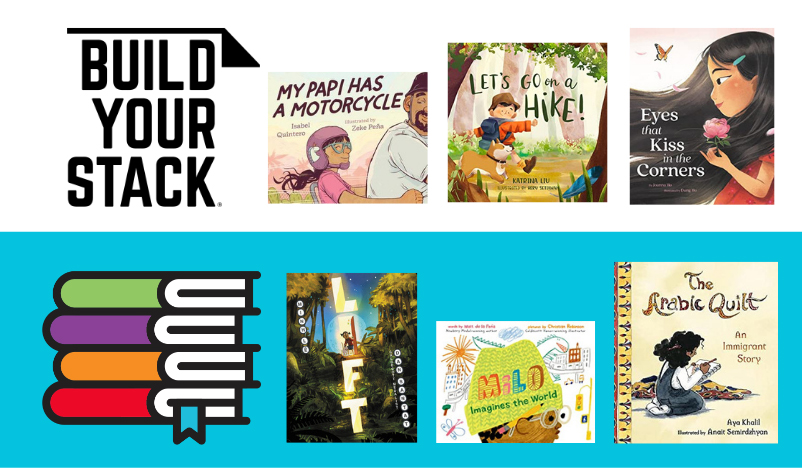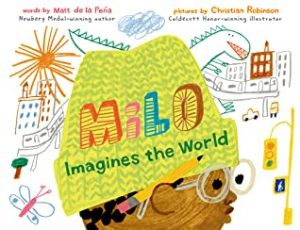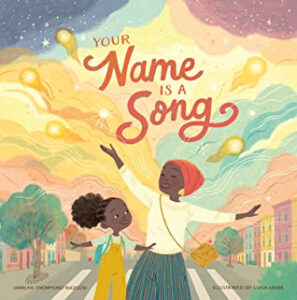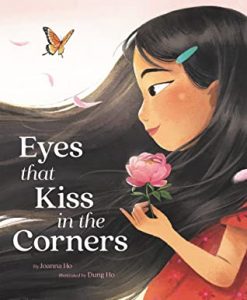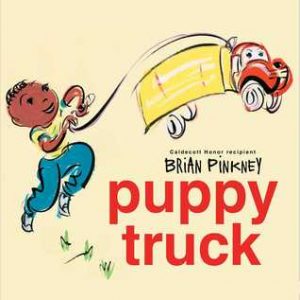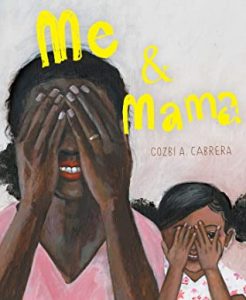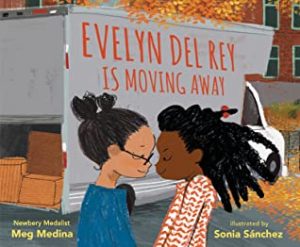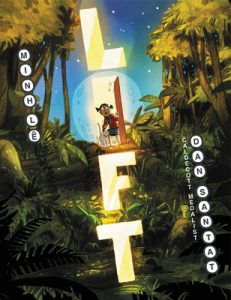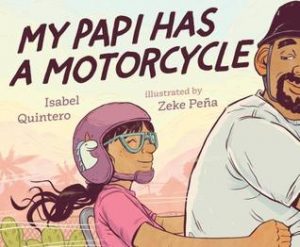This blog post was written by NCTE member Lynsey Burkins. It’s part of Build Your Stack,® an NCTE initiative focused exclusively on helping teachers build their book knowledge and their classroom libraries. Build Your Stack® provides a forum for contributors to share books from their classroom experience; inclusion in a blog post does not imply endorsement or promotion of specific books by NCTE.
On January 20, 2021 President Biden signed an Executive Order on Advancing Racial Equity and Support for Underserved Communities Through the Federal Government. Section 2 defined equity as follows:
Sec. 2. Definitions. For purposes of this order: (a) The term “equity” means the consistent and systematic fair, just, and impartial treatment of all individuals, including individuals who belong to underserved communities that have been denied such treatment, such as Black, Latino, and Indigenous and Native American persons, Asian Americans and Pacific Islanders and other persons of color; members of religious minorities; lesbian, gay, bisexual, transgender, and queer (LGBTQ+) persons; persons with disabilities; persons who live in rural areas; and persons otherwise adversely affected by persistent poverty or inequality.
As I began to process how the order defined equity, I began to think about my own practice as an elementary educator. I reflected specifically on creating an equitable curriculum. In the district I have taught in for the past 18 years, teachers have the agency to use our state standards to design learning opportunities for children. This gives teachers the responsibility of selecting materials used to teach the state standards.
I would like to think of myself as a teacher who strives to live within a social justice pedagogical stance. In this quest, I want to do all that I can to be careful not to other or create any stereotypes of any community and or dehumanize in any way. I want my students to feel seen and know that they are heard. I also want my students to be woke to themselves and the community around them. Books have always been a way to support conversations and to learn in my classroom.
Working within the learning standards, I’ve tried to use three categories of books when creating a menu of mentor texts to use for literacy units of study reading and writing. Franki Sibberson helped me to think in terms of a “menu of mentors,” in which I collect books in larger groups (menus) to use to pull text sets for learning. Three of my book menus that support student learning are:
- Books that teach about history
- Books that support conversations around social justice
- Books that represent incidental diversity
My hope is that any menu of mentors that is created for whole group units of study in reading and writing would include a mixture of all three of these book categories. All three of these are needed as we work to humanize all of our stories and experiences in this world.
Here is a sampling of books for these three categories that have really sparked conversations among the third graders in my class this year:
Books that teach about history give students a historical perspective about people and events.
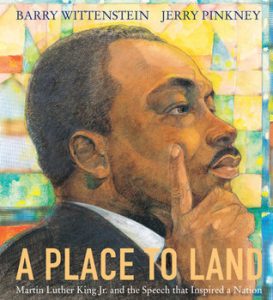 A Place to Land: Martin Luther King Jr. and the Speech That Inspired a Nation
A Place to Land: Martin Luther King Jr. and the Speech That Inspired a Nation
by Barry Wittenstein (author), Jerry Pinkney (illustrator)
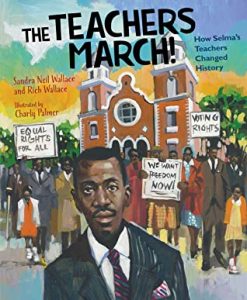 The Teachers March!: How Selma’s Teachers Changed History
The Teachers March!: How Selma’s Teachers Changed History
by Sandra Neil Wallace (author), Rich Wallace (author), Charly Palmer (illustrator)
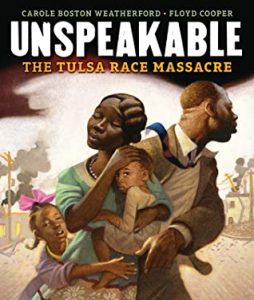 Unspeakable: The Tulsa Race Massacre
Unspeakable: The Tulsa Race Massacre
by Carole Boston Weatherford (author), Floyd Cooper (illustrator)
 Passage to Freedom: The Sugihara Story
Passage to Freedom: The Sugihara Story
by Ken Mochizuki (author), Dom Lee (illustrator)
by Ken Mochizuki (author), Dom Lee (illustrator)
Books that support conversations around social justice help students give words to feelings or things they see. Many times, after reading these books, students begin to organize themselves in conversations around taking action. It is important that these lists include books that not only explore the issues and trauma but also the joy. Social justice work should always have joy.
by Matt de la Peña (author), Christian Robinson (illustrator)
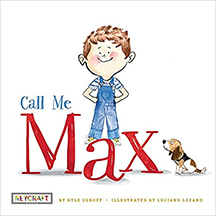 Call Me Max (Max and Friends Book 1)
Call Me Max (Max and Friends Book 1)
by Kyle Lukoff (author), Luciano Lozano (illustrator)
by Jamilah Thompkins-Bigelow (author), Luisa Uribe (illustrator)
by Joanna Ho (author), Dung Ho (Illustrator)
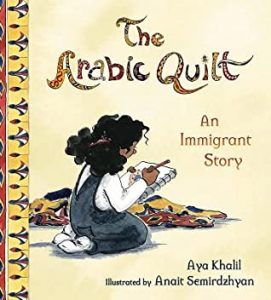
The Arabic Quilt: An Immigrant Story
by Aya Khalil (author), Anait Semirdzhyan (illustrator)
Books that represent incidental diversity better reflect the real world. These may be books with characters who just happen to belong to an underrepresented group or community or books in which the character’s diverse identity is not the central focus of the story.
by Brian Pinkney
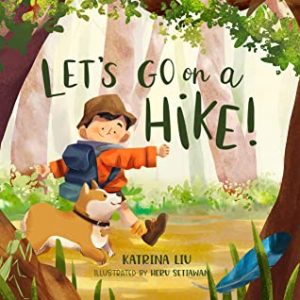
Let’s Go on a Hike! (a Family Hiking Adventure!)
by Katrina Liu (author), Heru Setiawan (illustrator)
by Cozbi A. Cabrera
by Meg Medina (author), Sonia Sanchez (illustrator)
by Minh Lê (author), Dan Santat (illustrator)
by Isabel Quintero (author) and Zeke Peña (illustrator)
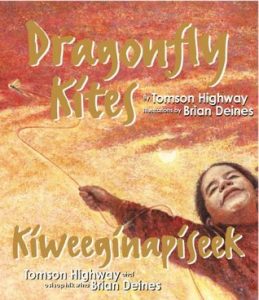
Dragonfly Kites (Songs of the North Wind)
by Tomson Highway (author), Julie Flett (illustrator)
One thing I want to always remember is that, over the school year, children should have experiences reading books about people and communities that show them in a myriad of experiences and situations. Histories, celebrations, struggles, trauma, and joys should be shared through stories so that children have a full picture of the richness and experiences of all those who make up our world.

Lynsey Burkins has been a passionate educator for over 18 years in Dublin, Ohio. She resides in Westerville, Ohio, with her husband and two children. She is a member of NCTE and is Chair of the Build Your Stack Committee. Lynsey also writes for the Classroom Communities blog. She lives for the moments when children see themselves in books and recognize that their stories matter too.
NCTE and independent bookstores will receive a small commission from purchases made using the links above.
It is the policy of NCTE in all publications, including the Literacy & NCTE blog, to provide a forum for the open discussion of ideas concerning the content and the teaching of English and the language arts. Publicity accorded to any particular point of view does not imply endorsement by the Executive Committee, the Board of Directors, the staff, or the membership at large, except in announcements of policy, where such endorsement is clearly specified.

